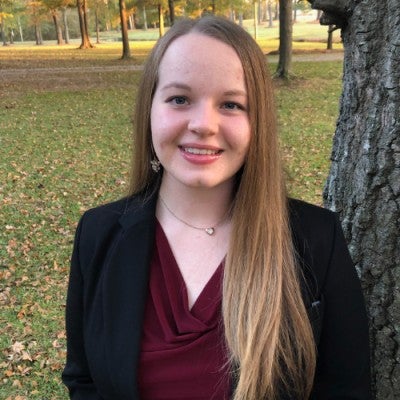December 4, 2020
Accelerate Rural NC wraps up
Thanks to an NC IDEA Ecosystem Grant, the College of Business’ (COB) Miller School of Entrepreneurship and its Crisp Small Business Resource Center recently completed the Accelerate Rural NC program.
Designed to increase the resiliency of rural communities in eastern North Carolina, the virtual program focused on helping 12 Pitt County businesses gain access to global markets with innovative products. The accelerator’s key components included e-commerce development, high-value offerings for niche markets, export training, and innovative business models based on customer discovery.
“We provided an ECOSYSTEM Partner grant to ECU’s Miller School of Entrepreneurship to help pilot the Accelerate Rural NC program in Pitt County, which is helping rural businesses grow sales and gain access to global markets,” said Ben Redding, CFO and ECOSYSTEM Program Manager. “The ECU team hit the ground running, and they, even in this time of COVID-19, successfully assembled a 30+member mentoring network and ran an effective accelerator for Pitt County entrepreneurs.”
“A common need for the participants was the fine-tuning of their e-commerce capabilities,” said David Mayo, director, Crisp Small Business Resource Center. “We talked about the tools needed to help them manage and plan for growth, such as key performance indicators.”
Ashley Nolan is a COB graduate. She received her BSBA in management degree with an entrepreneurship certificate. Her company, Copper Ashes, is based in Greenville, North Carolina, and they hand-create handmade copper/ nature-inspired jewelry, crystals and soaps.
“My company is an online business and wanted to join the program to learn more about e-commerce,” said Nolan. “I wanted to gain as much knowledge as possible to push my business forward and make good connections through the others that participated.”
What did Copper Ashes and Nolan learn?
“I learned a lot of information about Shopify (payment plans, marketing, blogs), running ads through videos and influencers, and connections with the other small businesses,” said Nolan. “I also learned more about Facebook Live selling that I hope to try in the new year.”
Robin Mee is the founder and president of Mee Derby, an executive search firm specializing in staffing and workforce solutions. She was one of more than 30 executives who served as mentors to the participating companies. She took part in the program because she believes “all entrepreneurship is important.”
“The impact in rural geographies has unique significance as career opportunities are vastly different and more limited when compared to more populated areas,” said Mee. “Igniting small business drives overall employment as the majority of Americans work for small to midsize businesses.”
Time, Talent and Treasure
Thanks to a generous gift from Matt Crisp (BSBA ’93, MBA), the Crisp Small Business Resource Center was established in 2019. The Center’s goal is to provide emerging entrepreneurs from ECU and the surrounding communities access to best practices and proven knowledge for anyone who plans to start or sustain enterprises in eastern North Carolina.

Matt Crisp asks questions during the final round of the Pirate Entrepreneurship Challenge (pre-COVID).
For the Accelerate Rural NC program, Crisp also gave his time because he wanted “to help other entrepreneurs grow their businesses and help their local economies thrive in the short and long term.”
“If the business has growth potential that goes untapped because the team doesn’t think big enough or know the right questions to ask, that’s where accelerators and mentors can help add value by asking probing strategic questions,” said Crisp.
“I believe that supporting rural business is critical to a balanced business infrastructure in the country,” said Bill Pursche, a program mentor and founder of First Call Advisors, a consulting service for senior executives. “As our economy has changed over the decades, we have moved away from ‘makers’ of basic needs to value-added businesses, plus a reliance on long sourced key products. With this change came a reduction in the self-reliance that our country was built on. Much of this self-reliant approach is at the heart of entrepreneurship.”
Along with the mentor/mentee relationships, participating companies were provided digital resources available from TechStars and GoSCAPE, which have supported other accelerators worldwide.
“The program also presented highly qualified speakers like Chad Dickerson, former CEO of ETSY and John Replogle, former CEO of Burt’s Bees, both of whom talked directly to the entrepreneurs and fielded direct questions via Zoom,” said Dennis Tracz, program director. “Our entrepreneurs were able to get advice from experienced entrepreneurs and executives on a very personal level through video conferencing.”
“Supporting entrepreneurs across rural North Carolina is a key mission of NC IDEA,” said Redding. “We are glad we were able to provide grant funding to the Miller School of Entrepreneurship for these pilot efforts, and hope to further support these impactful initiatives in the future.”
- Categories:
- Miller School of Entrepreneurship



